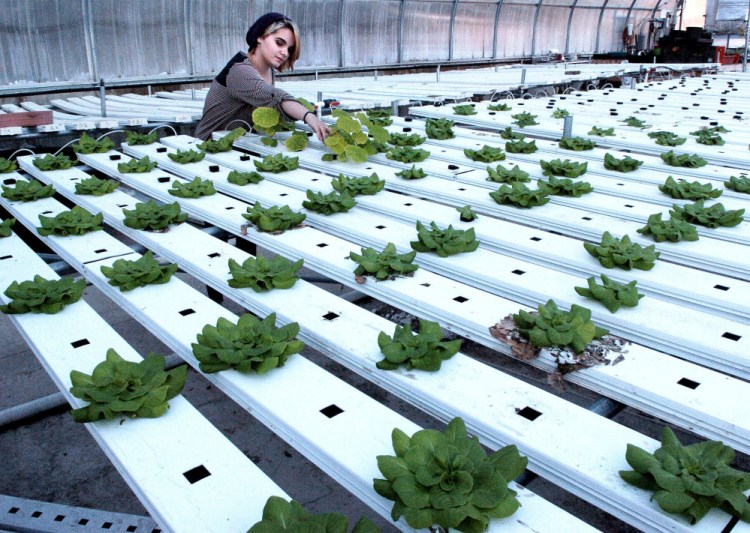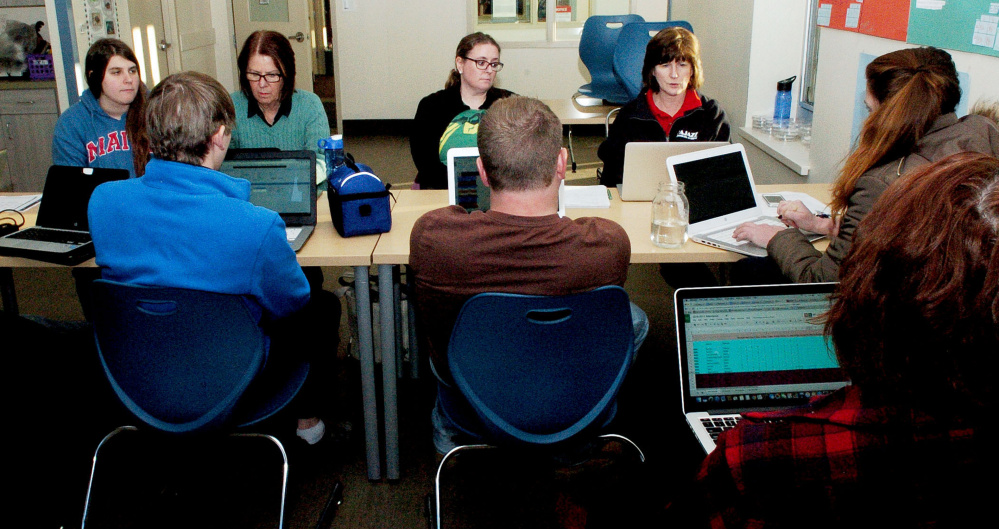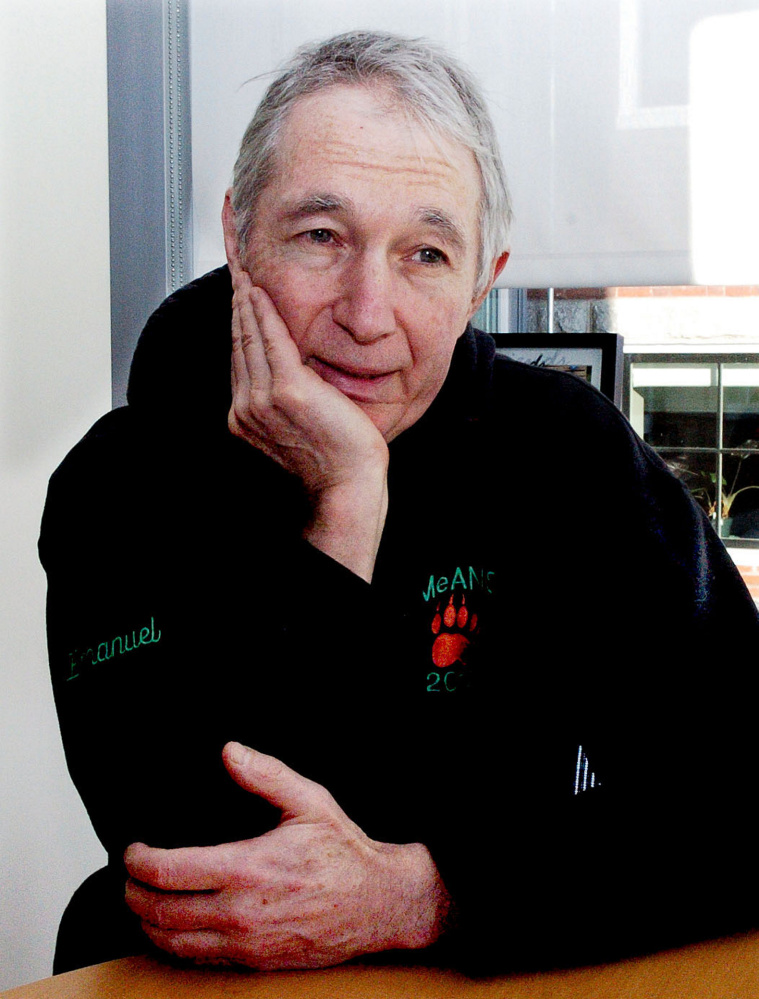FAIRFIELD — To the unfamiliar eye, Good Will-Hinckley is something of an enigma. The nonprofit organization, which sits on over 1,000 acres of land in the Hinckley portion of town and includes the state’s first charter school, has long been associated with troubled youth from unsafe homes.
Today, the school campus is still that. But it’s also much more.
In 2012, the campus was named the site of state’s first charter school by the Maine Charter Commission. Since that time, the programming at the school and the rest of Good Will-Hinckley has flourished and expanded. It continues to grow today.
Good Will-Hinckley President and Director of Development Ken Coville hasn’t been at the helm long. He was named to his post in July after former president Glenn Cummings left in 2014 to become president of the University of Southern Maine. Current Good Will-Hinckley Executive Director Rob Moody served as interim president until Coville’s appointment.
“The real focus is flexibility, diversity and responsiveness,” Coville said in an interview last week from his office at the school on Prescott Drive. He said focus on those attributes was for “whatever the state and community needs.”
Coville explained the school is centered on the Maine Academy of Natural Sciences, a charter school focused on hands-on learning experiences for its students in areas such as agriculture, zoology and botany. The academy recently completed its first charter, and last week it was awarded a new five-year charter.
Moody said the organization grew considerably over the last five years, which has allowed it to help more kids. There are just under 150 students at the academy, but Moody said the plan is to raise that number to 200 in the coming years.
“We want to maximize our floor plan here and fill up all the buildings we have and help those that need it,” Moody said.
The organization was first opened in 1889 by George Walter Hinckley and had a 125-year run as a residential facility for at-risk and homeless youth.
But in 2009, the school closed, in part due to lack of private donations during the recession.
Battling back, the organization sold a large portion of its campus to Kennebec Valley Community College, and in 2011 it reopened as the Maine Academy of Natural Sciences.
Those successes had to compete with political turmoil in 2015. Maine House Speaker Mark Eves was tapped to become the organization’s president, which provoked the ire of Gov. Paul LePage. The well documented dispute between Eves and LePage resulted in Good Will-Hinckley rescinding its offer to Eves. Eves sued LePage, alleging the governor threatened to withhold state funds from the school over political differences, but the lawsuit was dismissed.
Tonya Arnold, principal at the academy, said the goal now is to increase the school’s population by an increment of 20 students each year, which she said would not cause a disruption in the existing system.
The new charter allows for increased programming. One new program, Threshold, is aimed at teens who otherwise couldn’t be in the classrooms.
Emanuel Pariser, the director of curriculum and instruction at the Maine Academy of Natural Sciences, said he started a program similar to Threshold in 1992 at the Community School in Camden aimed at students who became pregnant during their time in high school. He said in a traditional school environment, there was not much that was offered to these teenagers, especially those who became pregnant during the course of high school and dropped out.
“When I came here in 2010, I brought the idea,” Pariser said. The idea sat on the back burner for a handful of years, but it remained on everyone’s mind.
The Threshold program, which goes into effect this coming September, aims at getting pregnant or homebound teenagers who have left school without a diploma to rejoin. The program will send educators to the students’ homes as well as connect with them electronically. Once every two weeks, on Mondays, the school will provide transportation to bring the students to the school site. During those visits, Good Will-Hinckley will provide child care for the student parents. “We anticipate 20 students served in the first year,” Coville said, with the goal of serving a total of 40 students.
Good Will-Hinckley is made up of a lot more than just the academy, though. Coville explained the campus also serves as home to the Glenn Stratton Learning Center, an educational facility for students with emotional and behavioral issues who are unable to take part in their local public schools. Coville said there are currently 20 students being served at the kindergarten through grade 12 center with the goal to expand that to 25 total students. He said the center equips these students with the skills to be able to re-enter their public schools.
There is also the Campus Step Up Program, which is for former foster care youth looking to continue their education. The students live on campus and are interested in attending KVCC or another college, and Coville said the program gives the students year-round housing and support services. He said while many colleges do provide support services, there is often a housing barrier for students who don’t have homes to return to on breaks. Moody said there are currently eight students in this program with the goal of growing that number to nearly 30 in the next few years.
One student, Ben Soggs, came to Good Will-Hinckley and the academy last year as a sophomore. Originally from Cape Elizabeth, he said he suffered a double concussion playing football, which lead to anxiety and depression, which lead to trouble reintegrating in school.
“I felt like an outsider,” Soggs said.
He said he found the academy and discovered a place that tailors its lessons to a student’s ability with more hands-on learning. He came in as a sophomore, but because of how he paced his learning, he was able to skip a year and is now a senior. Soggs lives in the dorm cottages on campus during the week, then goes back to Cape Elizabeth on the weekends.
Copy the Story LinkSend questions/comments to the editors.






Success. Please wait for the page to reload. If the page does not reload within 5 seconds, please refresh the page.
Enter your email and password to access comments.
Hi, to comment on stories you must . This profile is in addition to your subscription and website login.
Already have a commenting profile? .
Invalid username/password.
Please check your email to confirm and complete your registration.
Only subscribers are eligible to post comments. Please subscribe or login first for digital access. Here’s why.
Use the form below to reset your password. When you've submitted your account email, we will send an email with a reset code.